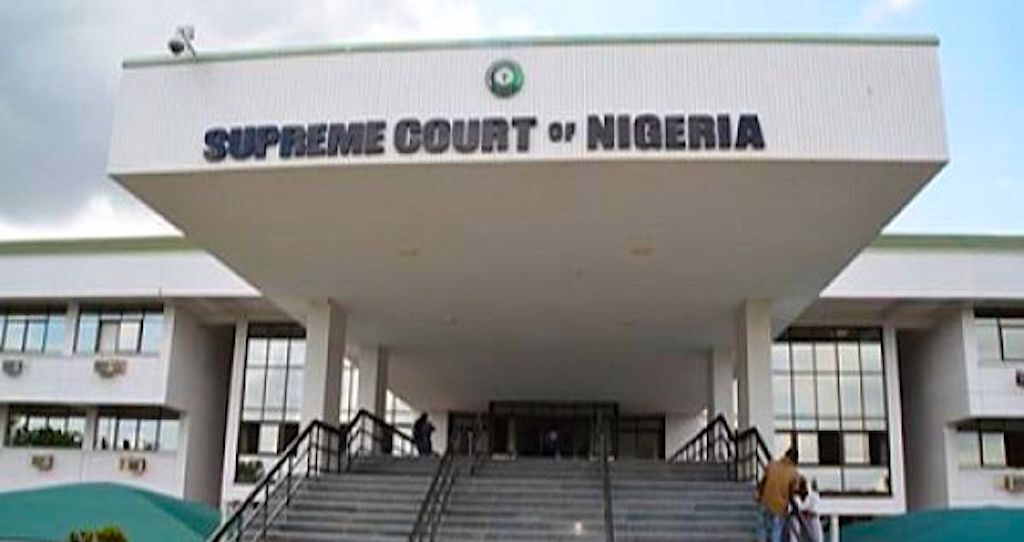Business
Supreme Court Orders Old N200, N500, N1,000 Notes To Remain In Circulation Till Dec 31

Old N200, N500, and N1,000 notes are to stay in circulation until December 31, 2023, the Supreme Court ruled on Friday.
The Federal Government’s policy of redesigning the naira was also overturned by the Supreme Court, which ruled that it violated the Constitution of 1999.
The Attorney General of the Federation, the states of Bayelsa and Edo, and Justice Emmanuel Agim, who read the lead judgment, declared that the defendants’ preliminary objections are overruled because the court has the authority to hear the case.
The court held that the conflict between the Federal Government and states must concern law or facts, citing Section 23(2)1 of the constitution.
The supreme court further ruled that President Muhammadu Buhari acknowledged the policy’s flaws and difficulties in his broadcast.
According to the court, the strategy has caused some people to engage in barter trade in the modern day in an effort to survive. The court further stated that the President’s defiance of the decree from February 8 is evidence of dictatorship.
The Supreme Court ruled that President Buhari violated the Federation’s Constitution by giving the Central Bank of Nigeria (CBN) instructions that resulted in the redesign of the Naira.
Judge Agim additionally ruled that before ordering the CBN to launch new Naira notes without authorization, the President failed to engage the National Council of States, the Federal Executive Council (FEC), and the National Economic Council (NEC).
He said that President Buhari’s use of his powers in an unlawful manner to redesign the naira violated the inhabitants of Nigeria’s fundamental rights in a number of different ways.
According to the supreme court, President Buhari’s use of his authority is not appropriate in a democracy and in a society like Nigeria.
By depriving the citizens of ownership of and access to their money, the court found that the President’s illegal use of executive powers caused them unheard-of economic hardship.
In order to contest whether the establishment of the policy was legitimate or not, sixteen states of the Federation filed the lawsuit.
On February 22, Judge John Inyang Okoro, who presided over a seven-member panel of Justices, set today for the court to announce its ruling on the lawsuit.
The 16 states, led by Kaduna, Kogi, and Zamfara, asked the supreme court to nullify and set down the policy since it is putting innocent Nigerians through hardship.
They demanded that Buhari’s order be revoked on the grounds that the President had introduced and carried out the policy without consulting the CBN.
On Friday, Kaduna State Governor Nasir El-Rufai and his counterpart from Kogi State, Yahaya Bello, were present in court to see the verdict. At the previous hearing, the two governors were also present in court. Bello Matawalle, the governor of Zamfara State, was also present in court on Friday.
Prior Events
Following complaints from numerous Nigerians, the CBN extended the deadline for the swap of old N200, N500, and N1,000 from January 31 to February 10. However, the Supreme Court ruled in a suit brought by the states that the Federal Government, the CBN, and commercial banks could not continue with the February 10 deadline pending the outcome of a notice regarding the issue.
However, the President instructed the apex bank to put the old N200 notes into circulation by April 10, 2023, to coexist alongside the new N200, N500, and N1,000 banknotes for 60 days. Also, he stated that the old N500 and N1,000 bills are no longer valid in Nigeria.
A rush of responses and vehement critiques of the President’s decision have been made, notably by governors of his party, the All Progressives Congress (APC).
Governors Nasir El-Rufai (Kaduna), Abubakar Badaru (Jigawa), Rotimi Akeredolu (Ondo), Umar Ganduje (Kano); Speaker of the House of Representatives, Femi Gbajabiamila; Minister of State for Labour and Employment, Festus Keyamo; and many stalwarts of the ruling APC have openly censured and faulted the President’s directive, arguing that it has no grounds because the case is before the apex court.
Prominent Nigerian Senior Attorneys like Femi Falana and Mike Ozekhome have also criticized the President’s action, arguing that he is powerless to overturn the supreme court of the nation
Additionally, three state governors—Kaduna, Zamfara, and Kogi—have launched a new lawsuit for contempt of court against Malami and CBN Governor Godwin Emefiele for allegedly disobeying the Supreme Court’s decision regarding the old naira notes.




